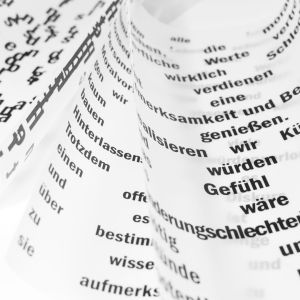German A2 Topics
In the German learning journey, German A2 level is a stage where basic knowledge is reinforced and communication skills are developed. At this level, a wide range of language use is aimed from daily conversations to simple written expressions. In addition, basic grammar rules are covered in more depth.
German A2 Topics
In German A2 level, grammar and vocabulary are expanded and communication skills are taken to a more advanced level. At this stage, the aim is to reinforce basic sentence structures, learn expressions frequently used in daily conversations and express yourself more comfortably.
The language structures you learn at German A2 level cover a wide area from basic conversational patterns to past tense usage. In addition, the correct use of different conjunctions and adverbs of time also provides clarity in communication.
In this article, we will cover the basic topics at German A2 level, together with common grammar structures and practical examples. Are you ready to take a step further on your German journey?
What is German A2 Level?
German A2 level is a stage where basic language skills at the beginner level are developed and transitioned to more complex structures. According to the European Language Portfolio, this level allows the learner to communicate on a wider range of topics in daily life.
A student at German level A2 can describe their experiences using the past tense, talk about their plans and establish simple cause-effect relationships. For example, they can express themselves with sentences such as “I went to the cinema yesterday” or “Because I am ill”. They can also engage in more detailed dialogues beyond daily routines, on topics such as travel, shopping and health.
At this level, the student can participate in more complex conversations with questions such as “When?”, “Why?” and “How?” and can defend their opinions at a basic level. They also enrich their sentence structure by using various conjunctions and prepositions of place and increase their speaking fluency.
Successfully completing German level A2 provides a strong foundation for speaking German more confidently and fluently in daily life.
What are German Level A2 Topics?
Greetings and Farewells (Begrüßung und Verabschiedung)
Personal Pronouns and Possessivpronomen (Personalpronomen & Possessivpronomen)
Numbers (Zahlen) and Dates (Daten)
Cases of the Noun:
● Nominative (Simple Case)
● Accusative (Definite Case)
● Dative (Indirect Object Case)
● Genitive (Possessive Case) - Basic Introduction
Verb Conjugations (Verb Konjugation):
● Regular Verbs (Regelmäßige Verben)
● Irregular Verbs (Unregelmäßige Verben)
● Modal Verbs (Modalverben)
● Separable Verbs (Trennbare Verben)
● Present Tense (Präsens)
● Past Tense (Perfekt and Präteritum)
● Future Tense (Futur I)
Imperative Sentences (Imperativ)
Nouns and Articles (Nomen & Article):
● Definite and Indefinite Articles
● Negative Article: Kein/Keine
Adjectives (Adjektive):
● Rating of Adjectives (Positiv, Komparativ, Superlativ)
Adverbs (Adverbien):
● Adverbs of Time (Gestern, heute, morgen)
● Adverbs of Place (Dort, hier, überall)
● Adverbs of Situation (Gerne, gut, schlecht)
Prepositions (Präpositionen):
● Prepositions of Place (an, auf, in, neben, über, unter, vor, hinter)
● Prepositions of Time (um, am, im, seit, bis)
● Prepositions used with Dative and Akkusativ (mit, nach, zu, von, für, ohne, gegen)
Sentence Making (Satzbau):
● Negative Sentences (Negation: nicht, kein)
● Interrogative Sentences (Fragesätze)
● W Questions (W-Fragen: Wer, Was, Wo, Wann, Warum, Wie, Welche)
● Ja/Nein Interrogative Sentences
Conjunctions (Konjunktionen):
● “und, aber, oder, denn”
● Clause conjunctions: “weil, dass, wenn, obwohl”
Time Expressions (Zeitangaben):
● Days, months, seasons
● Asking and telling the time
Daily Expressions in German (Alltägliche Redewendungen):
● Making an appointment
● Inviting and rejecting
● Asking for and giving directions
● Expressing feelings (happy, sad, sick, tired, etc.)
Can A2 German be learned in 1 month?
It is possible to learn German level A2 in 1 month, but it is necessary to follow an intensive and disciplined study program during this time. Level A2 covers basic language structures as well as simple past tense usage, everyday expressions and basic prepositions. Therefore, there are some points to consider in order to learn these topics in a short period of 1 month:
1. Create an Intensive Program:
● You should study German for at least 3-4 hours a day.
● Quickly review grammar topics and do lots of exercises.
● You should work on listening, reading, writing and speaking skills every day.
2. Determine Priority Subjects:
The subjects you absolutely must learn at A2 level:
● Past Tense (Perfekt and Präteritum)
● Modal Verbs (können, müssen, wollen)
● Dativ and


 Sculin Kids
Sculin Kids 